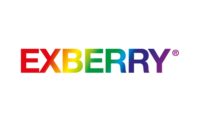Sensient Colors, L.L.C., St. Louis, a unit of Sensient Technologies Corp., a leading global manufacturer and marketer of colors, flavors and fragrances, develops colors for food and beverage applications and offers customers brand protection through high-performing custom color solutions made with raw materials that originate from strictly qualified global sources and are manufactured under the highest levels of safety and quality management standards.
“Our global supply chain, research and development, product development, quality control and manufacturing groups are completely integrated and operate under the strictest of verification and traceability processes,” explains Michael Reed, director of supply chain. “We continue to invest capital in our global supply chain strategy, expanding our network and reach to source only the best raw materials and ingredients. Sensient’s supply chain personnel regularly inspect suppliers and work directly with growers and manufacturers of raw materials, holding them to the highest standards.”
The company’s global sourcing and manufacturing capabilities on multiple continents in dual hemispheres help to ensure continuous, uninterrupted supply, thereby mitigating risk, he adds. “Our global supply chain is also managed regionally for optimal monitoring and relationship development. Sensient has 18-24-month proactive sourcing plans and contingency plans for all materials. This plan includes a predictive supply position that allows us to manage the continued conversion from synthetic to natural colors in the marketplace.”
Notable food-safety incidents across the globe have fueled concerns about the adulteration of natural colors in the marketplace. “Sensient is working to be the global leader in establishing industry quality and safety standards for natural colors where none exist,” explains Mark Goldschmidt, director of global quality control and product safety. “We continue to observe unapproved extraction solvents being used in turmeric, like ethyl acetate, which is not permitted in the U.S.; ethylene dichloride, which is not permitted in the European Community; and toluene, which is not permitted in any region. The potential consequences of adulterated colors are serious and include possible health effects, product recalls and damage to a company and its brand. At Sensient, we continue to invest in capital and actively participate in industry forums and associations to develop standards to eliminate the adulteration of natural colors and their raw materials.”
Goldschmidt continues: “We look at every phase of the natural color production cycle to determine potential risks and hazards. Sensient is predictive; we look at the potential risks from the growing region to our docks. We look for natural raw material risks, including heavy metals, microbiological contamination, pesticides, residual solvents and potential adulteration.”
Sensient routinely undergoes third-party audits and has a superior record with the Food and Drug Administration (FDA) and Code of Federal Regulations. It says it recently achieved Safe Quality Food (SQF) 2000 Level 3 certification, which represents the highest within the SQF program. Sensient has also received third-party certification for risk-management plans, manufacturing and distribution, as well as application of comprehensive and stringent assessment, screening and analytical testing programs for all raw materials and finished products.
“We know our colors define many of the world’s largest brands,” says Paul Manning, president. “Our dedication to quality and food safety ensures our customers will have complete confidence that their products contain safe, secure and consistently stable color.”



